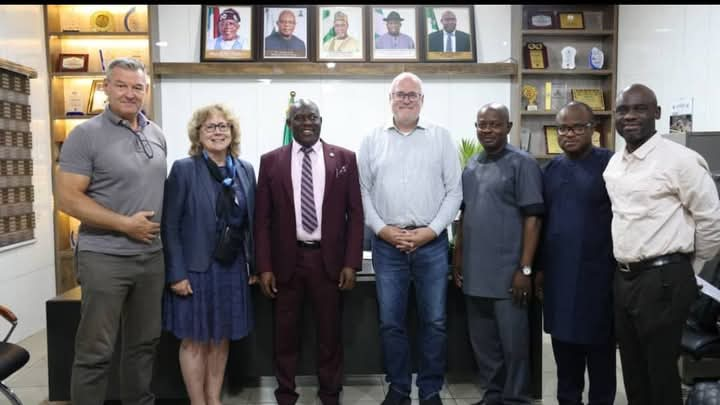To better understand the health implications resulting from exposure to oil pollution in Ogoniland, Rivers State, the Hydrocarbon Pollution Remediation Project (HYPREP), in collaboration with the International Agency for Research on Cancer and the World Health Organisation (IARC-WHO), has embarked on a health study.
The health study, a Human Biomonitoring (HBM) project to be conducted in the affected area, was recommended by the United Nations Environment Programme (UNEP) Report.
HBM is a scientific technique that helps to ascertain the levels of chemical components located in the human body. The procedure provides advanced information regarding the health risks associated with chemical exposure.
According to documents shared by HYPREP, the recommended study, spanning a period of three years, aims to identify the correlation between exposure to hydrocarbon contamination and disease patterns in the area.
During a gathering held with the IARC-WHO team on Wednesday at the Project Coordination Office (PCO) in Port Harcourt, Professor Nenibarini Zabbey, HYPREP Project Coordinator, highlighted that the Ogoni Public Health Study aligns with the objectives of UNEP.
Read Also: CSOs urge stronger NOSDRA action on oil spills
Describing the implications of hydrocarbon pollution as a major concern for the health agency, Prof. Zabbey said the UNEP Report on the Environmental Assessment of Ogoniland remains a core focus in tracking health impacts across the Ogoni population.
“This highlights the urgent need for the work we are initiating today,” Prof. Zabbey declared.
With the aim of driving policy interventions, public health planning, and long-term monitoring of the well-being of the Ogoni population, Prof. Zabbey believes the outcome will be credible, actionable, and gain global recognition.
“According to the PC, the key deliverables from the collaboration with IARC-WHO include, a comprehensive health risk assessment linked to hydrocarbon pollution, capacity building for local health professionals, and clear recommendations for public health responses based on the findings, ” the document noted.
Additionally, the project will provide a 100-bed Ogoni Specialist Hospital, a 40-bed Buan Cottage Hospital, health strengthening at Bori, Terabor, Kpite, and Nchia Health Centres, as well as medical outreach programmes.
While underscoring the need for a transparent study, HYPREP urged stakeholders such as civil groups and health institutions to engage and apply ethical compliance. The HYPREP Project Coordinator reaffirmed their commitment and support for the execution of the project.
Dr. Joachim Schüz, the IARC-WHO lead, Dr. Ann Ollson, and Mike Cowing asserted that the research will be carried out adequately and will be beneficial to Ogoni scientists in epidemiology and future studies.



